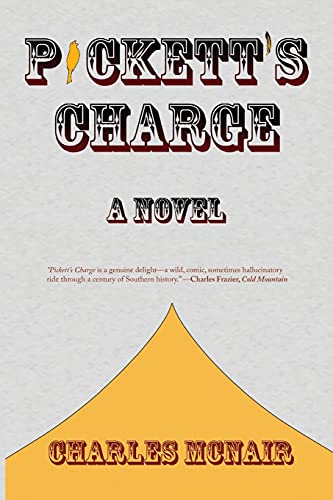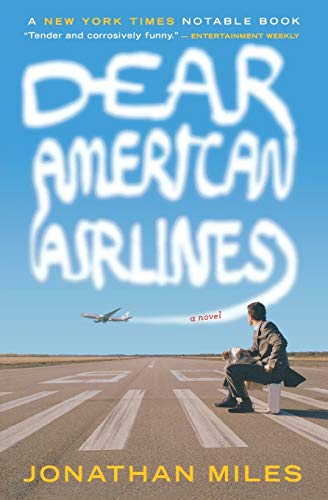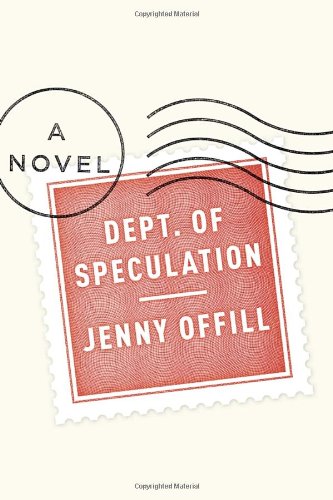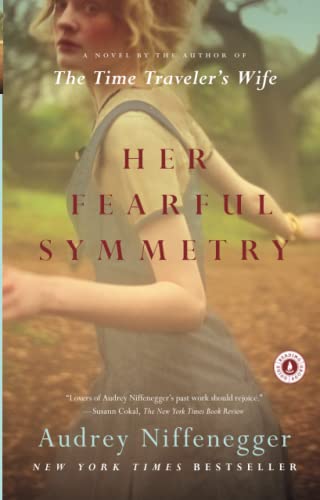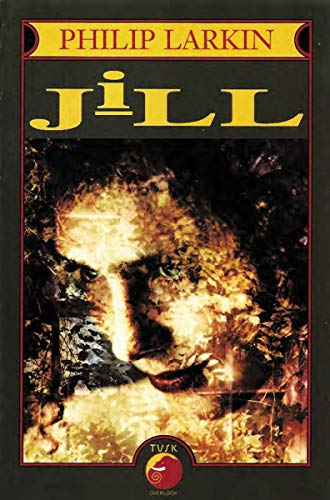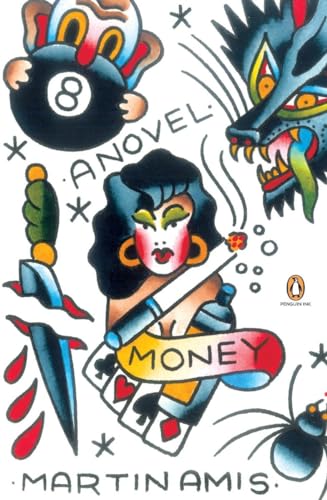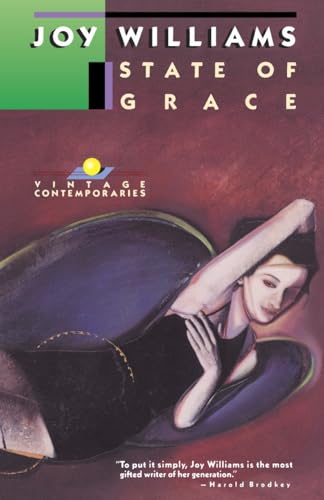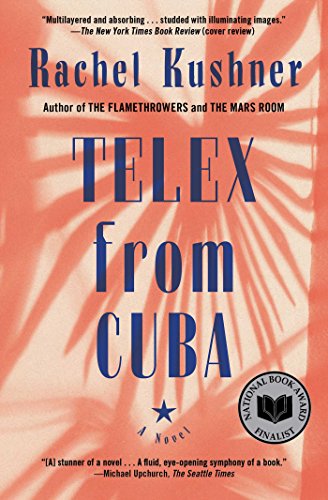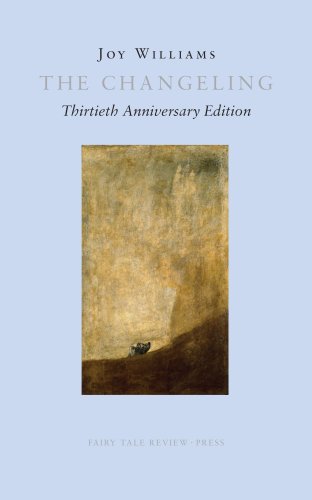Mentioned in:
Most Anticipated: The Great Winter 2025 Preview
It's cold, it's grey, its bleak—but winter, at the very least, brings with it a glut of anticipation-inducing books. Here you’ll find nearly 100 titles that we’re excited to cozy up with this season. Some we’ve already read in galley form; others we’re simply eager to devour based on their authors, subjects, or blurbs. We'd love for you to find your next great read among them.
The Millions will be taking a hiatus for the next few months, but we hope to see you soon.
—Sophia Stewart, editor
January
The Legend of Kumai by Shirato Sanpei, tr. Richard Rubinger (Drawn & Quarterly)
The epic 10-volume series, a touchstone of longform storytelling in manga now published in English for the first time, follows outsider Kamui in 17th-century Japan as he fights his way up from peasantry to the prized role of ninja. —Michael J. Seidlinger
The Life of Herod the Great by Zora Neale Hurston (Amistad)
In the years before her death in 1960, Hurston was at work on what she envisioned as a continuation of her 1939 novel, Moses, Man of the Mountain. Incomplete, nearly lost to fire, and now published for the first time alongside scholarship from editor Deborah G. Plant, Hurston’s final manuscript reimagines Herod, villain of the New Testament Gospel accounts, as a magnanimous and beloved leader of First Century Judea. —Jonathan Frey
Mood Machine by Liz Pelly (Atria)
When you eagerly posted your Spotify Wrapped last year, did you notice how much of what you listened to tended to sound... the same? Have you seen all those links to Bandcamp pages your musician friends keep desperately posting in the hopes that maybe, just maybe, you might give them money for their art? If so, this book is for you. —John H. Maher
My Country, Africa by Andrée Blouin (Verso)
African revolutionary Blouin recounts a radical life steeped in activism in this vital autobiography, from her beginnings in a colonial orphanage to her essential role in the continent's midcentury struggles for decolonization. —Sophia M. Stewart
The First and Last King of Haiti by Marlene L. Daut (Knopf)
Donald Trump repeatedly directs extraordinary animus towards Haiti and Haitians. This biography of Henry Christophe—the man who played a pivotal role in the Haitian Revolution—might help Americans understand why. —Claire Kirch
The Bewitched Bourgeois by Dino Buzzati, tr. Lawrence Venuti (NYRB)
This is the second story collection, and fifth book, by the absurdist-leaning midcentury Italian writer—whose primary preoccupation was war novels that blend the brutal with the fantastical—to get the NYRB treatment. May it not be the last. —JHM
Y2K by Colette Shade (Dey Street)
The recent Y2K revival mostly makes me feel old, but Shade's essay collection deftly illuminates how we got here, connecting the era's social and political upheavals to today. —SMS
Darkmotherland by Samrat Upadhyay (Penguin)
In a vast dystopian reimagining of Nepal, Upadhyay braids narratives of resistance (political, personal) and identity (individual, societal) against a backdrop of natural disaster and state violence. The first book in nearly a decade from the Whiting Award–winning author of Arresting God in Kathmandu, this is Upadhyay’s most ambitious yet. —JF
Metamorphosis by Ross Jeffery (Truborn)
From the author of I Died Too, But They Haven’t Buried Me Yet, a woman leads a double life as she loses her grip on reality by choice, wearing a mask that reflects her inner demons, as she descends into a hell designed to reveal the innermost depths of her grief-stricken psyche. —MJS
The Containment by Michelle Adams (FSG)
Legal scholar Adams charts the failure of desegregation in the American North through the story of the struggle to integrate suburban schools in Detroit, which remained almost completely segregated nearly two decades after Brown v. Board. —SMS
Death of the Author by Nnedi Okorafor (Morrow)
African Futurist Okorafor’s book-within-a-book offers interchangeable cover images, one for the story of a disabled, Black visionary in a near-present day and the other for the lead character’s speculative posthuman novel, Rusted Robots. Okorafor deftly keeps the alternating chapters and timelines in conversation with one another. —Nathalie op de Beeck
Open Socrates by Agnes Callard (Norton)
Practically everything Agnes Callard says or writes ushers in a capital-D Discourse. (Remember that profile?) If she can do the same with a study of the philosophical world’s original gadfly, culture will be better off for it. —JHM
Aflame by Pico Iyer (Riverhead)
Presumably he finds time to eat and sleep in there somewhere, but it certainly appears as if Iyer does nothing but travel and write. His latest, following 2023’s The Half Known Life, makes a case for the sublimity, and necessity, of silent reflection. —JHM
The In-Between Bookstore by Edward Underhill (Avon)
A local bookstore becomes a literal portal to the past for a trans man who returns to his hometown in search of a fresh start in Underhill's tender debut. —SMS
Good Girl by Aria Aber (Hogarth)
Aber, an accomplished poet, turns to prose with a debut novel set in the electric excess of Berlin’s bohemian nightlife scene, where a young German-born Afghan woman finds herself enthralled by an expat American novelist as her country—and, soon, her community—is enflamed by xenophobia. —JHM
The Orange Eats Creeps by Grace Krilanovich (Two Dollar Radio)
Krilanovich’s 2010 cult classic, about a runaway teen with drug-fueled ESP who searches for her missing sister across surreal highways while being chased by a killer named Dactyl, gets a much-deserved reissue. —MJS
Mona Acts Out by Mischa Berlinski (Liveright)
In the latest novel from the National Book Award finalist, a 50-something actress reevaluates her life and career when #MeToo allegations roil the off-off-Broadway Shakespearean company that has cast her in the role of Cleopatra. —SMS
Something Rotten by Andrew Lipstein (FSG)
A burnt-out couple leave New York City for what they hope will be a blissful summer in Denmark when their vacation derails after a close friend is diagnosed with a rare illness and their marriage is tested by toxic influences. —MJS
The Sun Won't Come Out Tomorrow by Kristen Martin (Bold Type)
Martin's debut is a cultural history of orphanhood in America, from the 1800s to today, interweaving personal narrative and archival research to upend the traditional "orphan narrative," from Oliver Twist to Annie. —SMS
We Do Not Part by Han Kang, tr. E. Yaewon and Paige Aniyah Morris (Hogarth)
Kang’s Nobel win last year surprised many, but the consistency of her talent certainly shouldn't now. The latest from the author of The Vegetarian—the haunting tale of a Korean woman who sets off to save her injured friend’s pet at her home in Jeju Island during a deadly snowstorm—will likely once again confront the horrors of history with clear eyes and clarion prose. —JHM
We Are Dreams in the Eternal Machine by Deni Ellis Béchard (Milkweed)
As the conversation around emerging technology skews increasingly to apocalyptic and utopian extremes, Béchard’s latest novel adopts the heterodox-to-everyone approach of embracing complexity. Here, a cadre of characters is isolated by a rogue but benevolent AI into controlled environments engineered to achieve their individual flourishing. The AI may have taken over, but it only wants to best for us. —JF
The Harder I Fight the More I Love You by Neko Case (Grand Central)
Singer-songwriter Case, a country- and folk-inflected indie rocker and sometime vocalist for the New Pornographers, takes her memoir’s title from her 2013 solo album. Followers of PNW music scene chronicles like Kathleen Hanna’s Rebel Girl and drummer Steve Moriarty’s Mia Zapata and the Gits will consider Case’s backstory a must-read. —NodB
The Loves of My Life by Edmund White (Bloomsbury)
The 85-year-old White recounts six decades of love and sex in this candid and erotic memoir, crafting a landmark work of queer history in the process. Seminal indeed. —SMS
Blob by Maggie Su (Harper)
In Su’s hilarious debut, Vi Liu is a college dropout working a job she hates, nothing really working out in her life, when she stumbles across a sentient blob that she begins to transform as her ideal, perfect man that just might resemble actor Ryan Gosling. —MJS
Sinkhole and Other Inexplicable Voids by Leyna Krow (Penguin)
Krow’s debut novel, Fire Season, traced the combustible destinies of three Northwest tricksters in the aftermath of an 1889 wildfire. In her second collection of short fiction, Krow amplifies surreal elements as she tells stories of ordinary lives. Her characters grapple with deadly viruses, climate change, and disasters of the Anthropocene’s wilderness. —NodB
Black in Blues by Imani Perry (Ecco)
The National Book Award winner—and one of today's most important thinkers—returns with a masterful meditation on the color blue and its role in Black history and culture. —SMS
Too Soon by Betty Shamieh (Avid)
The timely debut novel by Shamieh, a playwright, follows three generations of Palestinian American women as they navigate war, migration, motherhood, and creative ambition. —SMS
How to Talk About Love by Plato, tr. Armand D'Angour (Princeton UP)
With modern romance on its last legs, D'Angour revisits Plato's Symposium, mining the philosopher's masterwork for timeless, indispensable insights into love, sex, and attraction. —SMS
At Dark, I Become Loathsome by Eric LaRocca (Blackstone)
After Ashley Lutin’s wife dies, he takes the grieving process in a peculiar way, posting online, “If you're reading this, you've likely thought that the world would be a better place without you,” and proceeds to offer a strange ritual for those that respond to the line, equally grieving and lost, in need of transcendence. —MJS
February
No One Knows by Osamu Dazai, tr. Ralph McCarthy (New Directions)
A selection of stories translated in English for the first time, from across Dazai’s career, demonstrates his penchant for exploring conformity and society’s often impossible expectations of its members. —MJS
Mutual Interest by Olivia Wolfgang-Smith (Bloomsbury)
This queer love story set in post–Gilded Age New York, from the author of Glassworks (and one of my favorite Millions essays to date), explores on sex, power, and capitalism through the lives of three queer misfits. —SMS
Pure, Innocent Fun by Ira Madison III (Random House)
This podcaster and pop culture critic spoke to indie booksellers at a fall trade show I attended, regaling us with key cultural moments in the 1990s that shaped his youth in Milwaukee and being Black and gay. If the book is as clever and witty as Madison is, it's going to be a winner. —CK
Gliff by Ali Smith (Pantheon)
The Scottish author has been on the scene since 1997 but is best known today for a seasonal quartet from the late twenty-teens that began in 2016 with Autumn and ended in 2020 with Summer. Here, she takes the genre turn, setting two children and a horse loose in an authoritarian near future. —JHM
Land of Mirrors by Maria Medem, tr. Aleshia Jensen and Daniela Ortiz (D&Q)
This hypnotic graphic novel from one of Spain's most celebrated illustrators follows Antonia, the sole inhabitant of a deserted town, on a color-drenched quest to preserve the dying flower that gives her purpose. —SMS
Bibliophobia by Sarah Chihaya (Random House)
As odes to the "lifesaving power of books" proliferate amid growing literary censorship, Chihaya—a brilliant critic and writer—complicates this platitude in her revelatory memoir about living through books and the power of reading to, in the words of blurber Namwali Serpell, "wreck and redeem our lives." —SMS
Reading the Waves by Lidia Yuknavitch (Riverhead)
Yuknavitch continues the personal story she began in her 2011 memoir, The Chronology of Water. More than a decade after that book, and nearly undone by a history of trauma and the death of her daughter, Yuknavitch revisits the solace she finds in swimming (she was once an Olympic hopeful) and in her literary community. —NodB
The Dissenters by Youssef Rakha (Graywolf)
A son reevaluates the life of his Egyptian mother after her death in Rakha's novel. Recounting her sprawling life story—from her youth in 1960s Cairo to her experience of the 2011 Tahrir Square protests—a vivid portrait of faith, feminism, and contemporary Egypt emerges. —SMS
Tetra Nova by Sophia Terazawa (Deep Vellum)
Deep Vellum has a particularly keen eye for fiction in translation that borders on the unclassifiable. This debut from a poet the press has published twice, billed as the story of “an obscure Roman goddess who re-imagines herself as an assassin coming to terms with an emerging performance artist identity in the late-20th century,” seems right up that alley. —JHM
David Lynch's American Dreamscape by Mike Miley (Bloomsbury)
Miley puts David Lynch's films in conversation with literature and music, forging thrilling and unexpected connections—between Eraserhead and "The Yellow Wallpaper," Inland Empire and "mixtape aesthetics," Lynch and the work of Cormac McCarthy. Lynch devotees should run, not walk. —SMS
There's No Turning Back by Alba de Céspedes, tr. Ann Goldstein (Washington Square)
Goldstein is an indomitable translator. Without her, how would you read Ferrante? Here, she takes her pen to a work by the great Cuban-Italian writer de Céspedes, banned in the fascist Italy of the 1930s, that follows a group of female literature students living together in a Roman boarding house. —JHM
Beta Vulgaris by Margie Sarsfield (Norton)
Named for the humble beet plant and meaning, in a rough translation from the Latin, "vulgar second," Sarsfield’s surreal debut finds a seasonal harvest worker watching her boyfriend and other colleagues vanish amid “the menacing but enticing siren song of the beets.” —JHM
People From Oetimu by Felix Nesi, tr. Lara Norgaard (Archipelago)
The center of Nesi’s wide-ranging debut novel is a police station on the border between East and West Timor, where a group of men have gathered to watch the final of the 1998 World Cup while a political insurgency stirs without. Nesi, in English translation here for the first time, circles this moment broadly, reaching back to the various colonialist projects that have shaped Timor and the lives of his characters. —JF
Brother Brontë by Fernando A. Flores (MCD)
This surreal tale, set in a 2038 dystopian Texas is a celebration of resistance to authoritarianism, a mash-up of Olivia Butler, Ray Bradbury, and John Steinbeck. —CK
Alligator Tears by Edgar Gomez (Crown)
The High-Risk Homosexual author returns with a comic memoir-in-essays about fighting for survival in the Sunshine State, exploring his struggle with poverty through the lens of his queer, Latinx identity. —SMS
Theory & Practice by Michelle De Kretser (Catapult)
This lightly autofictional novel—De Krester's best yet, and one of my favorite books of this year—centers on a grad student's intellectual awakening, messy romantic entanglements, and fraught relationship with her mother as she minds the gap between studying feminist theory and living a feminist life. —SMS
The Lamb by Lucy Rose (Harper)
Rose’s cautionary and caustic folk tale is about a mother and daughter who live alone in the forest, quiet and tranquil except for the visitors the mother brings home, whom she calls “strays,” wining and dining them until they feast upon the bodies. —MJS
Disposable by Sarah Jones (Avid)
Jones, a senior writer for New York magazine, gives a voice to America's most vulnerable citizens, who were deeply and disproportionately harmed by the pandemic—a catastrophe that exposed the nation's disregard, if not outright contempt, for its underclass. —SMS
No Fault by Haley Mlotek (Viking)
Written in the aftermath of the author's divorce from the man she had been with for 12 years, this "Memoir of Romance and Divorce," per its subtitle, is a wise and distinctly modern accounting of the end of a marriage, and what it means on a personal, social, and literary level. —SMS
Enemy Feminisms by Sophie Lewis (Haymarket)
Lewis, one of the most interesting and provocative scholars working today, looks at certain malignant strains of feminism that have done more harm than good in her latest book. In the process, she probes the complexities of gender equality and offers an alternative vision of a feminist future. —SMS
Lion by Sonya Walger (NYRB)
Walger—an successful actor perhaps best known for her turn as Penny Widmore on Lost—debuts with a remarkably deft autobiographical novel (published by NYRB no less!) about her relationship with her complicated, charismatic Argentinian father. —SMS
The Voices of Adriana by Elvira Navarro, tr. Christina MacSweeney (Two Lines)
A Spanish writer and philosophy scholar grieves her mother and cares for her sick father in Navarro's innovative, metafictional novel. —SMS
Autotheories ed. Alex Brostoff and Vilashini Cooppan (MIT)
Theory wonks will love this rigorous and surprisingly playful survey of the genre of autotheory—which straddles autobiography and critical theory—with contributions from Judith Butler, Jamieson Webster, and more.
Fagin the Thief by Allison Epstein (Doubleday)
I enjoy retellings of classic novels by writers who turn the spotlight on interesting minor characters. This is an excursion into the world of Charles Dickens, told from the perspective iconic thief from Oliver Twist. —CK
Crush by Ada Calhoun (Viking)
Calhoun—the masterful memoirist behind the excellent Also A Poet—makes her first foray into fiction with a debut novel about marriage, sex, heartbreak, all-consuming desire. —SMS
Show Don't Tell by Curtis Sittenfeld (Random House)
Sittenfeld's observations in her writing are always clever, and this second collection of short fiction includes a tale about the main character in Prep, who visits her boarding school decades later for an alumni reunion. —CK
Right-Wing Woman by Andrea Dworkin (Picador)
One in a trio of Dworkin titles being reissued by Picador, this 1983 meditation on women and American conservatism strikes a troublingly resonant chord in the shadow of the recent election, which saw 45% of women vote for Trump. —SMS
The Talent by Daniel D'Addario (Scout)
If your favorite season is awards, the debut novel from D'Addario, chief correspondent at Variety, weaves an awards-season yarn centering on five stars competing for the Best Actress statue at the Oscars. If you know who Paloma Diamond is, you'll love this. —SMS
Death Takes Me by Cristina Rivera Garza, tr. Sarah Booker and Robin Myers (Hogarth)
The Pulitzer winner’s latest is about an eponymously named professor who discovers the body of a mutilated man with a bizarre poem left with the body, becoming entwined in the subsequent investigation as more bodies are found. —MJS
The Strange Case of Jane O. by Karen Thompson Walker (Random House)
Jane goes missing after a sudden a debilitating and dreadful wave of symptoms that include hallucinations, amnesia, and premonitions, calling into question the foundations of her life and reality, motherhood and buried trauma. —MJS
Song So Wild and Blue by Paul Lisicky (HarperOne)
If it weren’t Joni Mitchell’s world with all of us just living in it, one might be tempted to say the octagenarian master songstress is having a moment: this memoir of falling for the blue beauty of Mitchell’s work follows two other inventive books about her life and legacy: Ann Powers's Traveling and Henry Alford's I Dream of Joni. —JHM
Mornings Without Mii by Mayumi Inaba, tr. Ginny Tapley (FSG)
A woman writer meditates on solitude, art, and independence alongside her beloved cat in Inaba's modern classic—a book so squarely up my alley I'm somehow embarrassed. —SMS
True Failure by Alex Higley (Coffee House)
When Ben loses his job, he decides to pretend to go to work while instead auditioning for Big Shot, a popular reality TV show that he believes might be a launchpad for his future successes. —MJS
March
Woodworking by Emily St. James (Crooked Reads)
Those of us who have been reading St. James since the A.V. Club days may be surprised to see this marvelous critic's first novel—in this case, about a trans high school teacher befriending one of her students, the only fellow trans woman she’s ever met—but all the more excited for it. —JHM
Optional Practical Training by Shubha Sunder (Graywolf)
Told as a series of conversations, Sunder’s debut novel follows its recently graduated Indian protagonist in 2006 Cambridge, Mass., as she sees out her student visa teaching in a private high school and contriving to find her way between worlds that cannot seem to comprehend her. Quietly subversive, this is an immigration narrative to undermine the various reductionist immigration narratives of our moment. —JF
Love, Queenie by Mayukh Sen (Norton)
Merle Oberon, one of Hollywood's first South Asian movie stars, gets her due in this engrossing biography, which masterfully explores Oberon's painful upbringing, complicated racial identity, and much more. —SMS
The Age of Choice by Sophia Rosenfeld (Princeton UP)
At a time when we are awash with options—indeed, drowning in them—Rosenfeld's analysis of how our modingn idea of "freedom" became bound up in the idea of personal choice feels especially timely, touching on everything from politics to romance. —SMS
Sucker Punch by Scaachi Koul (St. Martin's)
One of the internet's funniest writers follows up One Day We'll All Be Dead and None of This Will Matter with a sharp and candid collection of essays that sees her life go into a tailspin during the pandemic, forcing her to reevaluate her beliefs about love, marriage, and what's really worth fighting for. —SMS
The Mysterious Disappearance of the Marquise of Loria by José Donoso, tr. Megan McDowell (New Directions)
The ever-excellent McDowell translates yet another work by the influential Chilean author for New Directions, proving once again that Donoso had a knack for titles: this one follows up 2024’s behemoth The Obscene Bird of Night. —JHM
Remember This by Anthony Giardina (FSG)
On its face, it’s another book about a writer living in Brooklyn. A layer deeper, it’s a book about fathers and daughters, occupations and vocations, ethos and pathos, failure and success. —JHM
Ultramarine by Mariette Navarro (Deep Vellum)
In this metaphysical and lyrical tale, a captain known for sticking to protocol begins losing control not only of her crew and ship but also her own mind. —MJS
We Tell Ourselves Stories by Alissa Wilkinson (Liveright)
Amid a spate of new books about Joan Didion published since her death in 2021, this entry by Wilkinson (one of my favorite critics working today) stands out for its approach, which centers Hollywood—and its meaning-making apparatus—as an essential key to understanding Didion's life and work. —SMS
Seven Social Movements that Changed America by Linda Gordon (Norton)
This book—by a truly renowned historian—about the power that ordinary citizens can wield when they organize to make their community a better place for all could not come at a better time. —CK
Mothers and Other Fictional Characters by Nicole Graev Lipson (Chronicle Prism)
Lipson reconsiders the narratives of womanhood that constrain our lives and imaginations, mining the canon for alternative visions of desire, motherhood, and more—from Kate Chopin and Gwendolyn Brooks to Philip Roth and Shakespeare—to forge a new story for her life. —SMS
Goddess Complex by Sanjena Sathian (Penguin)
Doppelgängers have been done to death, but Sathian's examination of Millennial womanhood—part biting satire, part twisty thriller—breathes new life into the trope while probing the modern realities of procreation, pregnancy, and parenting. —SMS
Stag Dance by Torrey Peters (Random House)
The author of Detransition, Baby offers four tales for the price of one: a novel and three stories that promise to put gender in the crosshairs with as sharp a style and swagger as Peters’ beloved latest. The novel even has crossdressing lumberjacks. —JHM
On Breathing by Jamieson Webster (Catapult)
Webster, a practicing psychoanalyst and a brilliant writer to boot, explores that most basic human function—breathing—to address questions of care and interdependence in an age of catastrophe. —SMS
Unusual Fragments: Japanese Stories (Two Lines)
The stories of Unusual Fragments, including work by Yoshida Tomoko, Nobuko Takai, and other seldom translated writers from the same ranks as Abe and Dazai, comb through themes like alienation and loneliness, from a storm chaser entering the eye of a storm to a medical student observing a body as it is contorted into increasingly violent positions. —MJS
The Antidote by Karen Russell (Knopf)
Russell has quipped that this Dust Bowl story of uncanny happenings in Nebraska is the “drylandia” to her 2011 Florida novel, Swamplandia! In this suspenseful account, a woman working as a so-called prairie witch serves as a storage vault for her townspeople’s most troubled memories of migration and Indigenous genocide. With a murderer on the loose, a corrupt sheriff handling the investigation, and a Black New Deal photographer passing through to document Americana, the witch loses her memory and supernatural events parallel the area’s lethal dust storms. —NodB
On the Clock by Claire Baglin, tr. Jordan Stump (New Directions)
Baglin's bildungsroman, translated from the French, probes the indignities of poverty and service work from the vantage point of its 20-year-old narrator, who works at a fast-food joint and recalls memories of her working-class upbringing. —SMS
Motherdom by Alex Bollen (Verso)
Parenting is difficult enough without dealing with myths of what it means to be a good mother. I who often felt like a failure as a mother appreciate Bollen's focus on a more realistic approach to parenting. —CK
The Magic Books by Anne Lawrence-Mathers (Yale UP)
For that friend who wants to concoct the alchemical elixir of life, or the person who cannot quit Susanna Clark’s Jonathan Strange and Mr. Norrell, Lawrence-Mathers collects 20 illuminated medieval manuscripts devoted to magical enterprise. Her compendium includes European volumes on astronomy, magical training, and the imagined intersection between science and the supernatural. —NodB
Theft by Abdulrazak Gurnah (Riverhead)
The first novel by the Tanzanian-British Nobel laureate since his surprise win in 2021 is a story of class, seismic cultural change, and three young people in a small Tanzania town, caught up in both as their lives dramatically intertwine. —JHM
Twelve Stories by American Women, ed. Arielle Zibrak (Penguin Classics)
Zibrak, author of a delicious volume on guilty pleasures (and a great essay here at The Millions), curates a dozen short stories by women writers who have long been left out of American literary canon—most of them women of color—from Frances Ellen Watkins Harper to Zitkala-Ša. —SMS
I'll Love You Forever by Giaae Kwon (Holt)
K-pop’s sky-high place in the fandom landscape made a serious critical assessment inevitable. This one blends cultural criticism with memoir, using major artists and their careers as a lens through which to view the contemporary Korean sociocultural landscape writ large. —JHM
The Buffalo Hunter Hunter by Stephen Graham Jones (Saga)
Jones, the acclaimed author of The Only Good Indians and the Indian Lake Trilogy, offers a unique tale of historical horror, a revenge tale about a vampire descending upon the Blackfeet reservation and the manifold of carnage in their midst. —MJS
True Mistakes by Lena Moses-Schmitt (University of Arkansas Press)
Full disclosure: Lena is my friend. But part of why I wanted to be her friend in the first place is because she is a brilliant poet. Selected by Patricia Smith as a finalist for the Miller Williams Poetry Prize, and blurbed by the great Heather Christle and Elisa Gabbert, this debut collection seeks to turn "mistakes" into sites of possibility. —SMS
Perfection by Vicenzo Latronico, tr. Sophie Hughes (NYRB)
Anna and Tom are expats living in Berlin enjoying their freedom as digital nomads, cultivating their passion for capturing perfect images, but after both friends and time itself moves on, their own pocket of creative freedom turns boredom, their life trajectories cast in doubt. —MJS
Guatemalan Rhapsody by Jared Lemus (Ecco)
Jemus's debut story collection paint a composite portrait of the people who call Guatemala home—and those who have left it behind—with a cast of characters that includes a medicine man, a custodian at an underfunded college, wannabe tattoo artists, four orphaned brothers, and many more.
Pacific Circuit by Alexis Madrigal (MCD)
The Oakland, Calif.–based contributing writer for the Atlantic digs deep into the recent history of a city long under-appreciated and under-served that has undergone head-turning changes throughout the rise of Silicon Valley. —JHM
Barbara by Joni Murphy (Astra)
Described as "Oppenheimer by way of Lucia Berlin," Murphy's character study follows the titular starlet as she navigates the twinned convulsions of Hollywood and history in the Atomic Age.
Sister Sinner by Claire Hoffman (FSG)
This biography of the fascinating Aimee Semple McPherson, America's most famous evangelist, takes religion, fame, and power as its subjects alongside McPherson, whose life was suffused with mystery and scandal. —SMS
Trauma Plot by Jamie Hood (Pantheon)
In this bold and layered memoir, Hood confronts three decades of sexual violence and searches for truth among the wreckage. Kate Zambreno calls Trauma Plot the work of "an American Annie Ernaux." —SMS
Hey You Assholes by Kyle Seibel (Clash)
Seibel’s debut story collection ranges widely from the down-and-out to the downright bizarre as he examines with heart and empathy the strife and struggle of his characters. —MJS
James Baldwin by Magdalena J. Zaborowska (Yale UP)
Zaborowska examines Baldwin's unpublished papers and his material legacy (e.g. his home in France) to probe about the great writer's life and work, as well as the emergence of the "Black queer humanism" that Baldwin espoused. —CK
Stop Me If You've Heard This One by Kristen Arnett (Riverhead)
Arnett is always brilliant and this novel about the relationship between Cherry, a professional clown, and her magician mentor, "Margot the Magnificent," provides a fascinating glimpse of the unconventional lives of performance artists. —CK
Paradise Logic by Sophie Kemp (S&S)
The deal announcement describes the ever-punchy writer’s debut novel with an infinitely appealing appellation: “debauched picaresque.” If that’s not enough to draw you in, the truly unhinged cover should be. —JHM
[millions_email]
A Year in Reading: 2024
Welcome to the 20th (!) installment of The Millions' annual Year in Reading series, which gathers together some of today's most exciting writers and thinkers to share the books that shaped their year. YIR is not a collection of yearend best-of lists; think of it, perhaps, as an assemblage of annotated bibliographies. We've invited contributors to reflect on the books they read this year—an intentionally vague prompt—and encouraged them to approach the assignment however they choose.
In writing about our reading lives, as YIR contributors are asked to do, we inevitably write about our personal lives, our inner lives. This year, a number of contributors read their way through profound grief and serious illness, through new parenthood and cross-country moves. Some found escape in frothy romances, mooring in works of theology, comfort in ancient epic poetry. More than one turned to the wisdom of Ursula K. Le Guin. Many describe a book finding them just when they needed it.
Interpretations of the assignment were wonderfully varied. One contributor, a music critic, considered the musical analogs to the books she read, while another mapped her reads from this year onto constellations. Most people's reading was guided purely by pleasure, or else a desire to better understand events unfolding in their lives or larger the world. Yet others centered their reading around a certain sense of duty: this year one contributor committed to finishing the six Philip Roth novels he had yet to read, an undertaking that he likens to “eating a six-pack of paper towels.” (Lucky for us, he included in his essay his final ranking of Roth's oeuvre.)
The books that populate these essays range widely, though the most commonly noted title this year was Tony Tulathimutte’s story collection Rejection. The work of newly minted National Book Award winner Percival Everett, particularly his acclaimed novel James, was also widely read and written about. And as the genocide of Palestinians in Gaza enters its second year, many contributors sought out Isabella Hammad’s searing, clear-eyed essay Recognizing the Stranger.
Like so many endeavors in our chronically under-resourced literary community, Year in Reading is a labor of love. The Millions is a one-person editorial operation (with an invaluable assist from SEO maven Dani Fishman), and producing YIR—and witnessing the joy it brings contributors and readers alike—has been the highlight of my tenure as editor. I’m profoundly grateful for the generosity of this year’s contributors, whose names and entries will be revealed below over the next three weeks, concluding on Wednesday, December 18. Be sure to subscribe to The Millions’ free newsletter to get the week’s entries sent straight to your inbox each Friday.
—Sophia Stewart, editor
Becca Rothfeld, author of All Things Are Too Small
Carvell Wallace, author of Another Word for Love
Charlotte Shane, author of An Honest Woman
Brianna Di Monda, writer and editor
Nell Irvin Painter, author of I Just Keep Talking
Carrie Courogen, author of Miss May Does Not Exist
Ayşegül Savaş, author of The Anthropologists
Zachary Issenberg, writer
Tony Tulathimutte, author of Rejection
Ann Powers, author of Traveling: On the Path of Joni Mitchell
Lidia Yuknavitch, author of Reading the Waves
Nicholas Russell, writer and critic
Daniel Saldaña París, author of Planes Flying Over a Monster
Lili Anolik, author of Didion and Babitz
Deborah Ghim, editor
Emily Witt, author of Health and Safety
Nathan Thrall, author of A Day in the Life of Abed Salama
Lena Moses-Schmitt, author of True Mistakes
Jeremy Gordon, author of See Friendship
John Lee Clark, author of Touch the Future
Ellen Wayland-Smith, author of The Science of Last Things
Edwin Frank, publisher and author of Stranger Than Fiction
Sophia Stewart, editor of The Millions
A Year in Reading Archives: 2023, 2022, 2021, 2020, 2019, 2018, 2017, 2016, 2015, 2014, 2013, 2011, 2010, 2009, 2008, 2007, 2006, 2005
Are We Entering a Golden Age of the Second Novel?
"Feminism did not need a guilty drunk!"
For years I bought into the old saw that says the second novel is the hardest one to write. It seemed to make sense. When starting out, most writers pour everything from the first 20 (or 30, or 40) years of their lives into their debut novel. It's only natural that on the second visit to the well, many novelists find it has gone dry.
Stephen Fry, the British writer and actor, explained it this way: "The problem with a second novel is that it takes almost no time to write compared with a first novel. If I write my first novel in a month at the age of 23 and my second novel takes me two years, which one have I written more quickly? The second, of course. The first took 23 years and contains all the experience, pain, stored-up artistry, anger, love, hope, comic invention and despair of a lifetime. The second is an act of professional writing. That is why it is so much more difficult."
Fry made these remarks at the inaugural awarding of the Encore Prize, established in England in 1989 to honor writers who successfully navigate the peculiar perils of the second novel. Winners have included Iain Sinclair, Colm Toibin, A.L. Kennedy, and Claire Messud.
Fry's point is well taken, but it's just the beginning of the difficulties facing the second novelist. If a first novel fails to become a blockbuster, as almost all of them do, publishers are less inclined to get behind the follow-up by a writer who has gained a dubious track record but has lost that most precious of all literary selling points: novelty. Writers get only one shot at becoming The Next Big Thing, which, to too many publishers, is The Only Thing. Failure to do so can carry a wicked and long-lasting sting.
(Full disclosure: I'm speaking from experience. My first novel enjoyed respectable sales and a gratifying critical reception, including a largely positive review from impossible-to-please Michiko Kakutani in The New York Times. But the novel failed to land on any best-seller lists or get me on Oprah. Five years later, my second novel disappeared like a stone dropped in a lake. I don't think anyone even noticed the splash. I recently sold my third novel -- 17 years after that quiet splash.)
There's plenty of empirical evidence to support the claim that the second novel is the hardest one to write -- and that it can be even harder to live down. After his well-received 1988 debut, The Mysteries of Pittsburgh, Michael Chabon spent years wrestling with a woolly, 1,500-page beast called The Fountain that finally defeated him and wound up in a drawer. Wisely, Chabon went in a different direction and produced Wonder Boys, a successful second novel that was, technically, his third. After getting nominated for a National Book Award for her 1973 debut, State of Grace, Joy Williams puzzled and pissed-off a lot of people with The Changeling, her unsettling second novel about a drunk woman on an island full of feral kids. Williams blamed the book's frosty reception on the political climate of the late 1970s: "Feminism did not need a guilty drunk!" Martin Amis followed his fine debut, The Rachel Papers, with the disappointingly flippant Dead Babies. I still find it hard to believe that the writer responsible for Dead Babies (and an even worse wreck called Night Train) could also be capable of the brilliant London Fields, Time's Arrow, The Information and, especially, Money: A Suicide Note. Then again, outsize talent rarely delivers a smooth ride. Even Zadie Smith stumbled with The Autograph Man after her acclaimed debut, White Teeth.
Sometimes a hugely successful -- or over-praised -- first novel can be a burden rather than a blessing. Alex Garland, Audrey Niffenegger, Charles Frazier, and Donna Tartt all enjoyed smash debuts, then suffered critical and/or popular disappointments the second time out. Frazier had the consolation of getting an $8 million advance for his dreadful Thirteen Moons, while Niffenegger got $5 million for Her Fearful Symmetry. That kind of money can salve the sting of even the nastiest reviews and most disappointing sales. Tartt regained her footing with her third novel, The Goldfinch, currently the most popular book among readers of The Millions and a few hundred thousand other people.
A handful of writers never produce a second novel, for varied and deeply personal reasons. Among the one-hit wonders we've written about here are James Ross, Harper Lee, Margaret Mitchell, and Ralph Ellison. And in certain rare cases, the second novel is not only the hardest one to write, it's the last one that gets written. Consider Philip Larkin. He published two highly regarded novels, Jill and A Girl in Winter, back to back in the 1940s -- and then abruptly abandoned fiction in favor of poetry. Why? Clive James offered one theory: "The hindsight answer is easy: because he was about to become the finest poet of his generation, instead of just one of its best novelists. A more inquiring appraisal suggests that although his aesthetic effect was rich, his stock of events was thin...Larkin, while being to no extent a dandy, is nevertheless an exquisite. It is often the way with exquisites that they graduate from full-scale prentice constructions to small-scale works of entirely original intensity, having found a large expanse limiting." In other words, for some writers the biggest canvas is not necessarily the best one.
Of course, second novels don't always flop -- or drive their creators away from fiction-writing. Oliver Twist, Pride and Prejudice, Samuel Richardson's Clarissa, Thomas Pynchon's The Crying of Lot 49, and John Updike's Rabbit, Run are just a few of the many second novels that were warmly received upon publication and have enjoyed a long shelf life. But until about a year ago, I regarded such stalwarts as the exceptions that proved the rule. Then a curious thing happened. I came upon a newly published second novel that knocked me out. Then another. And another. In all of these cases, the second novel was not merely a respectable step up from a promising debut. The debuts themselves were highly accomplished, critically acclaimed books; the second novels were even more ambitious, capacious, and assured.
I started to wonder: With so much high-quality fiction getting written every day in America -- especially by writers who are supposed to be in the apprentice phase of their careers -- is it possible that we're entering a golden age of the second novel? Here are three writers who make me believe we are:
Rachel Kushner
Rachel Kushner's 2008 debut, Telex from Cuba, was a finalist for the National Book Award. Refreshingly free of the mirror-gazing that mars many first novels, it told the story of two insulated colonies in the eastern end of Cuba in the late 1950s, where Americans were blithely extracting riches from sugar crops and nickel deposits while Fidel Castro and his rebels were getting ready to sweep away the corrupt regime of Fulgencio Batista -- and, with it, the Americans' cloistered world.
The novel is richly researched and deeply personal. Kushner's grandfather was a mining executive in Cuba in the 1950s, and her mother grew up there. Kushner interviewed family members, pored over their memorabilia, even traveled to Cuba to walk the ground and talk to people who remembered life before the revolution. To her great credit, Kushner's imagination took precedence over her prodigious research as she sat down to write. As she told an interviewer, "Just because something is true doesn't mean it has a place."
While her debut took place inside a hermetically sealed cloister, Kushner's second novel, The Flamethrowers, explodes across time and space. The central character is Reno, a young woman from the West hoping to break into the 1970s downtown New York art scene, a motorcycle racer with "a need for risk." But Reno's artistic aspirations are merely the springboard for this ambitious novel as it moves from the 1970s to the First World War, from America to Europe to South America. It teems with characters, events, voices, ideas. It's a big, sprawling, assured novel, and it announced the arrival of a major talent.
Jonathan Miles
Dear American Airlines, Jonathan Miles's first novel, exists in an even more tightly circumscribed space than Kushner's American enclave in pre-revolutionary Cuba. This novel takes place inside the American Airlines terminal at Chicago's O'Hare Airport -- or, more accurately, inside the brain of Benjamin R. Ford, who has been stranded at O'Hare while trying to fly from New York to Los Angeles to attend the wedding of his gay daughter and, just maybe, reverse the downward momentum of a magnificently botched life. The novel's conceit is a beauty: furious and utterly powerless, Ben, a failed poet, a failed drunk, a failed husband and father -- but a reasonably successful translator -- decides to sit down and write a complaint letter, demanding a refund from the soulless corporation that has kept him from attending his daughter's wedding, effectively thwarting his last chance at redemption. The conceit could have turned the novel into a one-trick pony in less capable hands, but Miles manages to make Ben's plight emblematic of what it's like to live in America today -- trapped and manipulated by monstrous forces but, if you happen to be as funny and resourceful as Ben Ford, never defeated by them.
It was a deft performance, but Miles outdid it last year with his second novel, Want Not, a meditation on the fallout of omnivorous consumerism. It tells three seemingly unrelated stories that come together only at the novel's end: Talmadge and Micah, a couple of freegan scavengers, are squatting in an abandoned apartment on the New York's Lower East Side, living immaculately pure lives off the grid; Elwin Cross Jr., a linguist who studies dying languages, lives alone miserably in the New Jersey suburbs, regularly visiting the nursing home where his father is succumbing to Alzheimer's; and Dave Masoli, a bottom-feeding debt collector, his wife Sara, whose husband was killed on 9/11, and her daughter Alexis, who brings the strands of the story together, in shocking fashion.
From the first pages, it's apparent that the themes are large, the characters are vivid and complex (with the exception of Dave Masoli), and the prose is rigorously polished. Here's one of many astonishing sentences, a description of what Elwin hears after he has accidentally struck and killed a deer while driving home late at night:
It took a few seconds for the panicked clatter in his head to subside, for the hysterical warnings and recriminations being shouted from his subcortex to die down, and then: silence, or what passes for silence in that swath of New Jersey: the low-grade choral hum of a million near and distant engine pistons firing through the night, and as many industrial processes, the muted hiss and moan of sawblades and metal stamps and hydraulic presses and conveyor belts and coalfired turbines, plus the thrum of jets, whole flocks of them, towing invisible contrails toward Newark, and the insectile buzz of helicopters flying low and locust-like over fields of radio towers and above the scrollwork of turnpike exits, all of it fused into a single omnipresent drone, an aural smog that was almost imperceptible unless you stood alone and quivering on a deserted highwayside in the snow-hushed black hours of a November morning with a carcass hardening in the ice at your feet.
Want Not is a profound book not because Miles preaches, not even because he understands that we are what we throw away, but because he knows that our garbage tells us everything we need to know about ourselves, and it never lies.
Charles McNair
In 1994, Charles McNair's weird little first novel, Land O' Goshen, was nominated for a Pulitzer Prize. It reads as if it were written by Faulkner on acid. It's corn-pone sci-fi. It's nasty and funny. It's brilliant.
The title conjures two locales: the place in Egypt where the Israelites began their exodus to the Promised Land; and the place where the novel unfolds, a little one-blinking-light grease stain in the piney wastes of southern Alabama. The story is told by Buddy, a 14-year-old orphan who lives in the woods, dodging the Christian soldiers who are trying to subjugate the populace. This future era is called the New Times, but it's a lot like the Old Testament -- bloody tooth and bloody claw. Sometimes Buddy dresses up in animal skins and, as The Wild Thing, terrorizes the locals, trying "to wake up those tired, beaten-down old souls in every place where folks just gave up to being stupid and bored and commanded." Buddy enjoys a brief idyll at his forest hideout with a beautiful girl named Cissy Jean Barber, but the world won't leave them in peace. Through the nearly Biblical tribulations of his coming of age, Buddy learns the key to survival: "Sad sorrow can't kill you, if you don't let it."
Last year, after nearly two decades of silence, McNair finally published his second novel, Pickett's Charge. It's bigger than its predecessor in every way. It traverses an ocean, a century, a continent. If Land O' Goshen was content to be a fable, Pickett's Charge aspires to become a myth. It tells the story of Threadgill Pickett, a former Confederate soldier who, at the age of 114 in 1964, is a resident of the Mobile Sunset Home in Alabama. As a teenage soldier, Threadgill watched Yankees murder his twin brother, Ben, a century earlier, and when Ben's ghost appears at the nursing home to inform Threadgill that he has located the last living Yankee soldier, a wealthy man in Bangor, Maine, Threadgill embarks on one last mission to avenge his brother's death.
Pickett's Charge has obvious echoes – the Bible, Twain, Cervantes, Marquez, Allan Gurganus's Oldest Living Confederate Widow Tells All. But this novel's most direct forebear might be Charles Portis's Norwood, another story about a southerner's quixotic journey to the North to seek justice. While Threadgill Pickett is after something big -- vengeance -- Norwood Pratt is simply out to collect the $70 he loaned a buddy in the Marines. Yet McNair and Portis seem to agree that folly is folly, regardless of its scale. And they both know how to turn it into wicked fun.
Of course one could argue that a half dozen books do not constitute a trend or herald a new golden age. But I'm sure I've missed a truckload of recent second novels that would buttress my claim. Maybe Jenny Offill's Dept. of Speculation, which has come out 15 years after her debut and is concerned, in part, with the difficulty of writing a second novel. Surely there are others that disprove the old saw. I would love it if you would tell me about them.
Image Credit: Wikipedia
Interview With Charles McNair
Over at Bloom today, a lively Q&A with Charles McNair, whose Pickett's Charge was the subject of Kevin Hartnett's recent review here. In particular, McNair takes us through the harrowing blow by blow of his road to publication, the "sophomore jinx story" from a Pulitzer Prize-nominated author.
Southern Myths and Yankee Murder in the Strangely Wonderful World of Pickett’s Charge
This piece was produced in partnership with Bloom, a site that features authors whose first books were published when they were 40 or older.
Charles McNair’s strange, frequently beautiful new novel Pickett’s Charge is about an old Confederate soldier who embarks on a journey from Alabama to Maine looking for vengeance. I received the book in the mail just as I was beginning a nearly opposite journey — though for work, not blood — and I picked it up hoping that the story would help me begin to understand a unique part of the country I’d soon be calling home.
The South, more than any other region of America, is forbidding to outsiders. I watched two kids from my high school class attempt college in the South before retreating back to Maine within a year, which left me thinking maybe it was never wise for New Englanders to stray into such unfamiliar territory. More generally, I grew up with what I take to be a somewhat common perspective, on the South as charming but inscrutable, languid but dangerous, a place where sinkholes — real and metaphorical — await anyone who doesn’t know exactly where to step.
Even for natives, apparently, the South is perilous. When Pickett’s Charge opens, Threadgill Pickett is a magically spry 113-years-old and living in a nursing home in Mobile. Everywhere he goes he wears a gray cap with a faded yellowhammer feather, a holdover from his brief, terrible stint as a teenage soldier in the Rebel army. The hat covers horrific burns that melted Threadgill’s head down nearly to the gray matter, and it covers other wounds, too, like the memory of his twin brother, Ben, being executed by vicious Yankee soldiers. The scars on Threadgill’s head reflect the anger and shame scarred into his heart. One wonders whether McNair means for Threadgill to reflect the state of the South, too, a century after its final surrender.
Threadgill is idling in the nursing home when Ben drops like an apparition into his room with an important message. “Ain’t but one Yankee left now, Gill. Just one. He’s up in Bangor, Maine...You hearing me? Hear what I’m saying?” Ben says. Provoked, Threadgill sets off on an assassin’s quest to avenge his brother’s death, during which he has a bewilderingly imaginative range of Southern adventures — with a lesbian cab driver, a mad monkey smuggler named Larry LaRue, a midget passing a kidney stone, and an island populated only with goats.
Pickett’s Charge is filled with phantasms, but it’s rooted in Alabama soil. Charles McNair, 59, grew up in Alabama, and has written just one previous novel, Land O’Goshen, which was nominated for the Pulitzer Prize in 1994. His virtues as a writer are plain. He’s inventive, original, and has a particular talent for finding language that is surprising without being showy. But his real skill is his deep familiarity with the South as a place, it’s creatures, customs, and yearnings.
For example, alone on that goat island, Threadgill puts his foot down on “something pulpy,” and instantly realizes what “[e]very boy raised in the South knows,” that he’s just stepped on a deadly cottonmouth. Elsewhere in the story, a tornado rips through a poultry farm, leaving behind tens of thousands of dead chickens, which sets the stage for a grand barbecue like a heavenly feast. It’s a fantastic setup, but McNair fills it with knowing details — “Men wore muleskinner gloves to drag the hot tin. Crews with pitchforks spread the chickens into cardboard boxes” — that conceal the edges of the myth.
From a national view, the South is still a place of myths and larger than life characters: Bible thumpers, Tea Partiers, Creationists, secessionists, vote suppressors. The biggest mythology of all, though, is about race and the idea that 150 years after what is generally referred to as the Civil War, the South remains insufficiently repentant about the place that slavery and racism occupy in its cultural heritage. You can’t spend five minutes in the South without beginning to look for evidence of the myth in practice, without seeing in every interaction between a black cashier and a white patron, a direct extension of that peculiar institution.
Pickett’s Charge is not about race, and Threadgill’s hatred for the North overwhelms any particular views he might have about people with darker skin than his. Nevertheless, his murderous quest is bound up with the South’s racial legacy. At one point he finds himself at night in a forest filled with wailing black men and women, whose backs are striped with scars. Later, he witnesses the last act of brutal murder, a black preacher’s body tossed into a river.
You keep waiting for all the violence and strangeness to knock Threadgill off his mission. In such a bizarre, capricious world, surely one man’s single-minded effort to kill the last remaining Yankee soldier must be folly. McNair is an expansively generous writer — attentive to his readers and kind to his characters — and he carefully avoids reducing Threadgill to an object of pity. But he does suggest that Threadgill’s deliberate course north is misguided, just as many attempts to find the edges of a myth are likely only to lead you deeper into the swamp.
